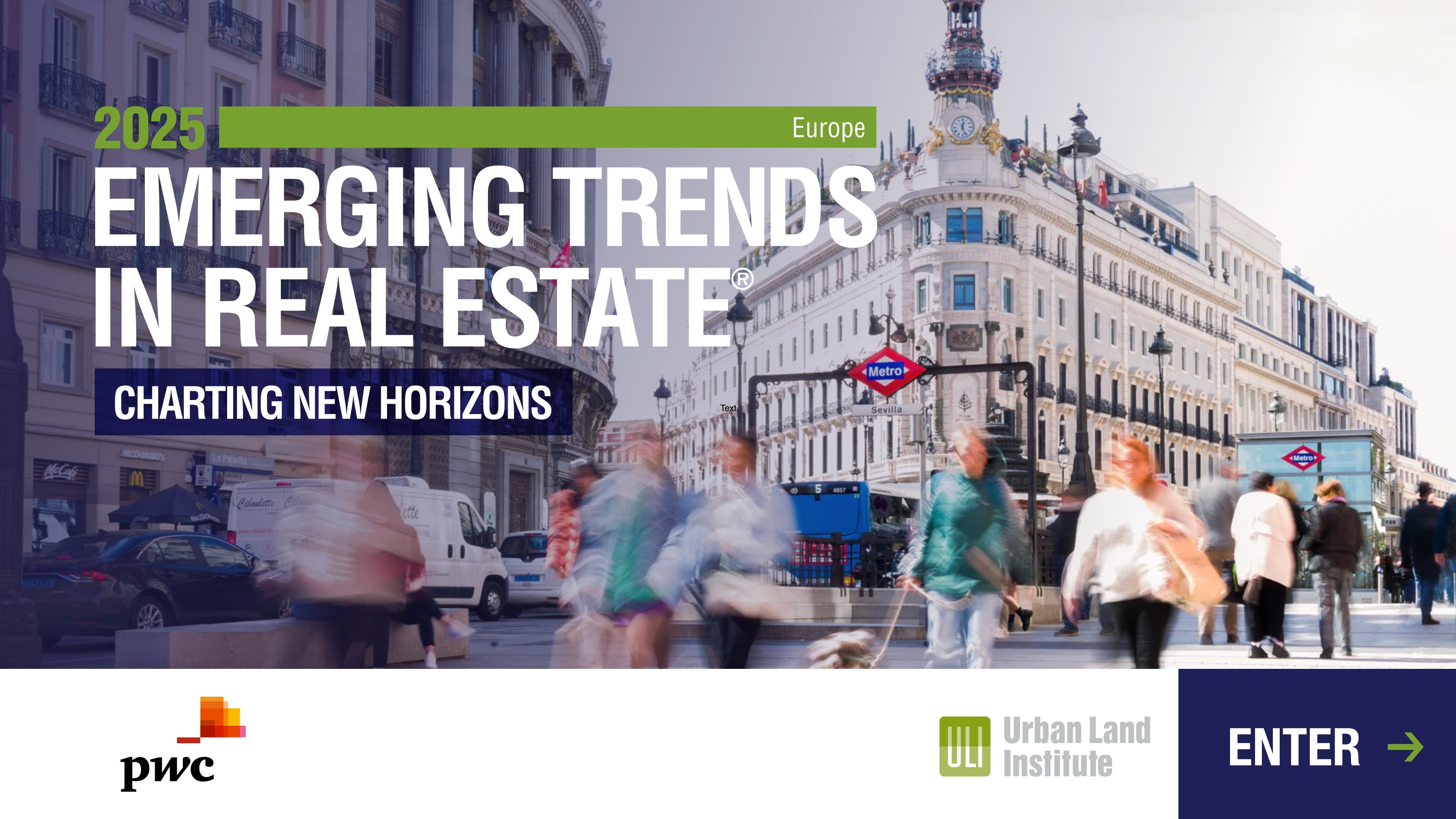AI-Generated Summary
Context and Overview
The document titled "Emerging Trends in Real Estate: Europe 2025" is a comprehensive report published by the Urban Land Institute (ULI), focusing on the evolving landscape of real estate in Europe, particularly in relation to sustainability and the impact of climate change. The report aims to inform investors, developers, and policymakers about key trends, challenges, and opportunities in the sector.
Economic Environment
European real estate leaders express cautious optimism amid a more favorable interest rate environment compared to previous years. However, fragile economic growth and geopolitical uncertainties, particularly due to the ongoing conflicts in Ukraine and the Middle East, contribute to a complex market atmosphere. The report highlights that 44% of surveyed professionals remain concerned about tenant demand, especially in light of a weak economic outlook.
Investment Trends
There is a notable shift in investment focus toward alternative sectors such as logistics, self-storage, and various forms of housing, which have shown resilience amidst market fluctuations. The survey indicates that while buyers and sellers are nearing agreement on pricing, the investment market remains subdued, with concerns about inflated prices driven by over-optimistic growth assumptions.
Sustainability and ESG
Environmental, social, and governance (ESG) issues are critical to the future of real estate investment. Over two-thirds of respondents are concerned about meeting sustainability and decarbonization requirements, underscoring the need for the industry to adapt to evolving regulatory landscapes. The report indicates that 88% of participants expect ESG considerations to significantly influence financing options moving forward.
Cities to Watch
The report ranks cities based on their investment potential, with London, Madrid, and Paris leading the list. Madrid's rise to the second position highlights its growing attractiveness due to quality of life improvements. The rankings reflect investor preferences for larger, more liquid markets while also recognizing the potential of secondary cities.
Key Concerns in Real Estate
Concerns about political instability, escalating geopolitical tensions, and regulatory challenges are prevalent among industry professionals. The report reveals that 85% of respondents cite political instability as a primary concern, while 77% express worry over social and environmental issues. These factors are contributing to a cautious investment climate.
Future Outlook for Housing
The housing sector remains a focal point for investment, driven by persistent demand and supply imbalances across Europe. The report identifies student housing and private rented residential as particularly attractive sectors, given their potential for stable returns. However, challenges such as high construction costs and stringent regulations are hindering housing delivery.
Technology and Innovation
The increasing integration of technology, including AI and digital tools, is transforming the real estate landscape. Many industry leaders recognize that a proactive approach to leveraging operational real estate and understanding market dynamics will be essential for navigating future challenges.
Conclusion
In summary, "Emerging Trends in Real Estate: Europe 2025" provides valuable insights into the evolving real estate landscape across Europe. The focus on sustainability, investment trends, and the socio-economic environment highlights both the challenges and opportunities facing the industry. Industry stakeholders are urged to adapt to these changes to ensure long-term viability and success.
